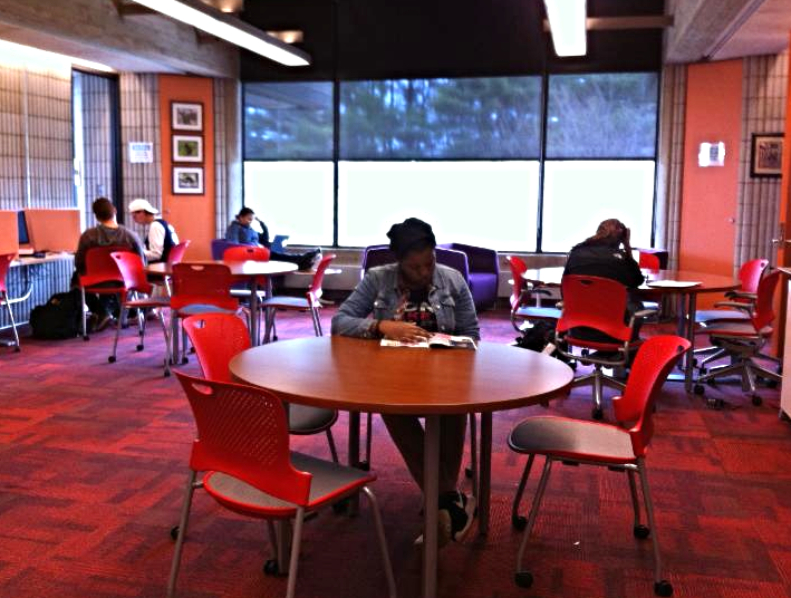|
College of Arts and Sciences Newsletter
|
|
Volume 3, Number 4, April 2015
|
|
| An Examination of Global Economic Activity
As a child of academics, Nikolay Anguelov, an Assistant Professor in the department of Public Policy, did exactly what his parents told him to do - he went to graduate school. "I found a program at Clemson University that embraced an interdisciplinary focus," Anguelov said. "It allowed me to focus on governance as it relates to economic activity."
And now Anguelov's ideas are being noticed. His article, "Development Before Democracy: Why ASEAN Isn't Pressuring Myanmar to Reform," was recently published in Foreign Affairs. The article discusses Myanmar's reactions when the United States lifting economic sanctions. Anguelov argues that Myanmar didn't uphold their reform promises because they didn't need to. They were already getting rich by trading and engaging with other countries. The U.S. sanctions did not hurt them; they helped.
Anguelov furthers his ideas in two forthcoming books. Economic Sanctions vs. Soft Power Lessons from North Korea, Myanmar, and the Middle East, published by Palgrave Macmillan, looks at how economic restrictions affect the United States. "In a globalized world, companies are competing for market access," Anguelov said. "By putting up sanctions, we are not allowing U.S. companies to compete on equal ground." His other book, The Dirty Side of the Garment Industry, argues for social responsibility within the textile trade. This book, published by CRC Press, discusses regulatory practices and offers recommendations for reform.
Anguelov's works highlight his bold ideas behind government interactions and the global market economy. His work also helps to start a discussion among colleagues and across disciplines. "We need to start asking questions that are uncomfortable and get away from legacies that are not longer applicable," Anguelov said. "We need to stop looking at literature and start talking about how things have changed."
|
...................................................................................................................................................
|
A Young Foreign Language Aficionado

According to the Modern Language Association's February report, there is a 6.7 percent decrease in college students learning a foreign language. But sophomore Matthew Cafferky is not one of those students. In fact, he is a connoisseur of foreign languages, and he believes that learning another language is crucial. "We have to know more than just what's taught in our major," Cafferky said. "And learning a language helps us to be more educated and well-rounded."
When Cafferky arrived at UMass Dartmouth, he arrived with a slight advantage. He had taken Spanish and French in high school, and he was proficient in both languages. It was his high school Spanish class that helped him realize his careers goals. "I realized I wanted to be a high school foreign language teacher," Cafferky said. "So I knew I needed to be an expert in the languages."
Now, Cafferky is a double major in Spanish and French, and he recently started learning German too. But being a foreign language aficionado has its challenges too. "It is difficult to major in two foreign languages," he said. "My mind gets stuck in a language and I have to switch over to another."
Despite these challenges, Cafferky hopes to fully immerse himself in the French language by studying abroad next fall. He recently applied to two Quebec universities - Université Laval and L'Université de Sherbrooke. "At these universities, there is complete immersion," Cafferky said. "I won't be taking any classes taught in English."
|
...................................................................................................................................................
|
Language-Based Renovations  For about ten years, the Foreign Language and Literature Department dreamed about renovating their language lab - Room 207. The lab had always been a place for language learners to practice their conversation skills, but it was filled with rows of cubicles that didn't allow students to collaborate together. Truth be told, it was an outdated model that needed updated technology. So last year, Room 207 got its long-awaited makeover and became the Foreign Language Multimedia Center (FLMC). Sandra Rivera, the Director of the FLMC, was hired to help move the project forward. "We looked at other universities and used them as our guides," she said. "We wanted to make sure we fostered a team-based approach to learning." The Foreign Language Multimedia Center provides a casual, lounge atmosphere where students can practice their language skills. There are four round tables spaced out throughout the room. They allow for tutors and students to sit together and converse in a relaxed manner. Another table can seat five students, has the capability to connect five laptops, and can project to a big-screen monitor on the facing wall. "We are trying to provide the best service we can," Rivera said. "So far, the students love the new feel of the lab."
The center's next-door neighbor - Room 208 - was also renovated. The multimedia flip classroom will be readily available for use in the fall. The space is equipped to seat 25 users and provides an array of technological advances. It has five tables in the room, and each table is equipped with five laptops and one big-screen monitor. "A long-term goal is to use the room for both faculty and students," Rivera said. "The room will be used for conferences, workshops, and language-based learning."
|
|
...................................................................................................................................................
|
|
|
|
|
Copyright © 2015 University of Massachusetts Dartmouth. All Rights Reserved.
|
|
|
|